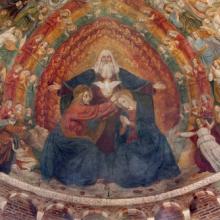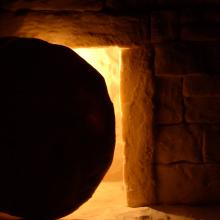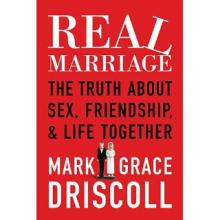jesus christ
Fuller Theological Seminary has joined a growing list of schools where administrators are being pressed by students, alumni, and faculty for designation as a sanctuary campus.
In the aftermath of Donald Trump’s election as president, some campuses are considering the moniker “sanctuary campus,” which generally means that the university will not willingly give the government information about their students, staff, or faculty who are undocumented immigrants.
The early Christians had to deal with the loss of their most important mandala — the one they called their Lord and Savior, Jesus Christ. Isn’t Christianity weird? I mean, Christians revere Jesus the Messiah, the King. That’s weird because the one Christians revere as the incarnate word of God was killed. He became a victim of human violence.
How do you atone for that? How do you reconcile with the fact that the one whom Christians worship became a victim of human violence?
The high liturgical seasons of Advent and Lent have always held a special place in my heart because of their emphasis on the life, death, and resurrection of Christ. But Advent has special significance because it, unlike any other season, most accurately expresses the now-not-yet feeling of the Kingdom of God. It highlights the fact that we are waiting. We’re waiting for the return of God, for the day when God will come and restore all things.
Many of our Advent hymns capture this beautifully, especially “O Come, O Come Emmanuel.” Before the birth of Christ, God’s people lived in a time of waiting. The space between the Old and New Testaments, between Malachi and Matthew, cover a span of more than 400 years. That was 400 years without a word from God, without a prophet. It was 400 years of one invasion after another as one conqueror overtook another. And the people began to wonder, “When will YHWH come? When will God send the Promised One?”
And then, announced by shepherds and angels, and greeted by Magi from the East, Jesus was born in Bethlehem. The Promised One had come! The Kingdom of God was at hand! But not quite. He lived, he died, he rose again … but we’re still waiting. We live between the two great Christ events of history, between his first coming and his second. We live in the in-between time as we await the return of the King and the day when God will come again to dwell with God’s people, to wipe away every tear, and to finally and for all eternity make everything new (Rev. 21).
The Cross is an inexhaustible mystery, but among the many things it does so well is make visible the love of God.
In Jesus Christ, God is not an abstraction, concept, or idea. The Unknowable is made known. The Invisible is made material. All mysticism is now grounded, and all agnosticism now countered, in this particular Person; there is now, paradoxically, a Measure within Measurelessness.
"For in Christ lives all the fullness of God in a human body." (Col. 2:9) "For God in all his fullness was pleased to live in Christ." (Col. 1:19)
Conversely, whatever is not revealed in Jesus is not the Triune God.
Contemporary Christians (of all sorts of persuasions) tend to de-couple God from Jesus.
It’s one thing to say kind words about gay people and atheists while admonishing those who would bury them in stones.
It’s one thing to walk humbly and call the Catholic Church to compassion for the poor.
It’s one thing to kiss a horribly disfigured man from whom most people would run in disgust.
But apparently, it’s quite another to start calling out growing economic inequality and naive faith in capitalism. By doing just that in his recent encyclical, Pope Francis has touched a third rail in conservative American politics. So begins the backlash.
Yet in the new round of skirmishing around Francis and his supposedly “liberal” views, U.S. political pundits and news media wags — both progressive and conservative — are missing the point about the pope and what he’s up to. Their mistake? They see his words and deeds through the lens of American politics and ideology. What Francis is doing is prophetic, not political, and we should recognize that he’s playing, to his credit, in a whole different arena.

Mandela photo, left, courtesy www.sagoodnews.co.za, Jesus statue, right, court. Onderwijsgek. Both via Wikimedia Commons/RNS
Few would deny Nelson Mandela’s greatness, but one of Britain’s best-known journalists, Dominic Lawson, has taken the media to task for comparing South Africa’s first black president to Jesus.
Writing on the eve of the departure of world leaders to Johannesburg to attend a memorial service for Mandela, who died last week, Lawson wrote in the Daily Mail: “He was a giant — but how absurd for the BBC to compare Mandela to Christ.”
Lawson singled out BBC presenter Evan Davis who told listeners on a Dec. 7 radio program that Mandela should be ranked alongside Jesus in “the pantheon of virtue.”
The BBC radio program included former U.S. President Jimmy Carter, who emphatically dismissed the notion of Mandela being on par with the founder of Christianity.
Jim Wallis talks about the #FaithfulFilibuster outside the Capitol Building and offers a reading of his conversion text, Matthew 25.
The bearer of Good News, the one who carries the message of Resurrection, is not motivated by fear of punishment (either for herself or others) but by confidence in her experience of the love of God. She knows God's love is greater than anything in herself or in her hearers; that Jesus can conquer anything in them that is not controlled by holy love.
"Such love has no fear, because perfect love expels all fear. If we are afraid, it is for fear of punishment, and this shows that we have not fully experienced his perfect love." 1 John 4:18
God's love has the final word, for Jesus has conquered the sin of the whole world and has defeated the grave. Christ's best messengers know this love by its all-consuming redemptive activity in themselves and confidently carry this love to others, without fear.
NASHVILLE, Tenn. — For the third time, Jesus is about to change Reza Aslan’s life.
As a teenager, Aslan turned to Jesus in an evangelical youth group, where becoming a Christian made him feel like a real American.
He later studied Jesus of Nazareth in college, which led Aslan to a doctorate in the sociology of religion.
Now Aslan’s controversial new book about Jesus is about to make him a best-selling author. Zealot: The Life and Times of Jesus of Nazareth has already reached No. 1 on Amazon.com. It’s expected to debut this weekend on The New York Times’ best-seller list, becoming the latest in a long line of controversial and profitable books about the so-called historical Jesus.
Aslan said he wants to show the power of Jesus as a flesh-and-blood human being, rather than the savior of the world. That Jesus has gotten lost in 2,000 years of church history, he said.
"God doesn't just hate what you do. God hates who you are." — A Well-Known Contemporary Preacher
What this pastor says above, as well as much of what he says in the sermon from which this line is taken, comes from reading the Bible as if every sentence in it can and should be read as bearing the same weight as all others when we answer the question: "Who is God?"
When we read the Bible with the first Christians we begin to understand that the way they read these texts is not the way an uber-rationalist modern reads them.
Since Jesus himself was the one who taught the apostles to read the Old Testament, the way the churches they founded read the Bible is important for us, too.
God never was only the words he utters, or the ones we utter about God — just like we are never the sum total of everything we have spoken or what has been spoken of us. There is so much more to the mystery of any person than mere words; how much more so the mystery of the divine persons.
A new translation of the Bible called “The Voice” (no, Cee-Lo makes no appearances in this one), published by Thomas Nelson, has created quite a buzz. The discussion is not so much around what is in the newest version, but rather what’s left out.
According to a recent article on the Huffington Post, the words “Jesus Christ” do not appear anywhere in the New Testament. And for some, this is tantamount to heresy. The publishers point out, however, that “Christ” was not, in fact, Jesus’ last name.
“We know love by this, that he laid down his life for us--and we ought to lay down our lives for one another. How does God's love abide in anyone who has the world's goods and sees a brother or sister in need and yet refuses help? Little children, let us love, not in word or speech, but in truth and action.”
On April 29th, many churches will be hearing this reading from I John 3:16-24 as the Epistle Lesson for the Revised Common Lectionary for the Fourth Sunday of Easter/Year B. Here is a new hymn inspired by this biblical teaching for compassion.
When I was in my early 20’s, a Bible teacher by the name of Dianne Kannady posed a rhetorical question that continues to haunt me to this day: “If Jesus was your only source of information about what Christianity should look like, how would you live your life?”
That question has gotten me into a lot of trouble over the years.
Consider the three things that instantly come to mind.
1. Jesus preached nonviolence.
2. Jesus was a faith healer.
3. Jesus challenged the religious fundamentalists of his day.
The Gospel of St. Matthew, Chapter 28 tells us:
The angel spoke to the women: "There is nothing to fear here. I know you're looking for Jesus, the One they nailed to the cross. He is not here. He was raised, just as he said. Come and look at the place where he was placed.
"Now, get on your way quickly and tell his disciples, 'He is risen from the dead. He is going on ahead of you to Galilee. You will see him there.' That's the message."
To listen to a playlist of music for this Resurrection Day 2012, CLICK HERE.
Good Friday. Is this something we can understand? What makes it so "good?"
Sure, we have theologies about this moment in history. We have systematic notions about why who and what. We tell the story every year. Some traditions reenact the tale more than once a year. If you attend a church from one of the "liturgical" traditions, you here the story told during the Eucharist every Sunday. "Christ has died. Christ has risen. Christ will come again." It's the Paschal Mystery told again and again. I also know some baptist preachers who tell the story of the Passion of Christ every Sunday. It is the Gospel, after all. This story, the Passion, is The Gospel for many of us Christian preachers. And to not share the Passion is to not share The Gospel. If their sermons don't end with the proclamation of the sarcifice of Jesus, well, then it just isn't Church.
I'm still sharing that e-unspoken part of my faith again. This is not new. Nor is it unintegrated with the rest of my Christian spirituality. It's actually essential to it. So, in the spirit of clarity, I'm sharing this stuff with you.
I have no idea what Jesus meant by giving himself over like this. We read the scripture last night at the Maundy Thursday service at First Baptist. "Not my will but your's." Lord, have mercy. Someone asked the question as someone does every year, "Why would God want Jesus to die? If it's God's will...Why would God will this to happen?" I have some practiced answers. This year I offered them as I usually do.
"First, let me tell you what the tradition says..." I give a theological gloss and watch their eyes glaze over. Right. Of course. This isn't an answer any more than a stump speech is an indication of what will actually happen if one of these people in the news are elected to public office. So, I move on.
Dear HFASS,
How are you? I am fine.
Actually that’s not true.
See, I wrote another sermon this week. A real one. I worked on it all week. And then yesterday afternoon I threw it away and just wrote you this letter instead. Because I realized that in my sermon I was trying really hard to convince you of something.
Here I am, urging people to deconstruct their preconceptions about God, and this guy finds Jesus in a tortilla.
Russ, my father-in-law, lives outside of Espanola, New Mexico. He can tell you from years of living there that the area is jumping with religious mysticism. One of the most famous sites in the state is the church at Chimayo, where people visit to touch the holy dirt and be healed. There are photos of people who claim to have been restored all over the place, along with crutches and canes left behind.
I’m not one to affirm or challenge that what people experience there is real. But I did find it interesting that the priests who serve the church simply bring in new dirt to fill the hole when they get low. Perhaps they bless it; I have no idea. But it’s interesting to me the power we inhere to certain items, acts or places. Is God more or less there than somewhere else? Is there something about the experience that opens us up to the already-present God? Is it an example of the uncharted power of the human mind?
When Franklin Graham expressed doubts about President Obama’s Christian faith during and interview on Morning Joe last week, it reminded me of an uncomfortable dinner I had in the late ‘90s.
I sat down for a pleasant meal in the home of two great friends — one of them a white evangelical faith leader deeply committed to social justice. Well into the evening’s conversation —when we’d dropped all our pretenses and our exchanges moved well past mealtime niceties — one friend asked me something that caught me entirely off guard.
“Do you think Martin Luther King, Jr. was a Christian?” he said.
I was dumbstruck. I had never heard anyone actually ask that question before.
“Yes,” I replied. “What would make you doubt that?”
As he explained, it became clear: My friend wasn’t sure whether Dr. King was a Christian because King’s Christianity didn’t look like my friend’s Christianity.
The approach of Transfiguration Sunday reminds me how, all through my evangelical upbringing, all those Bible passages about God's glory, and especially the parts where God demands glory, made me a bit uneasy. For example, Sunday's reading from 2 Peter 1 doesn't exactly hide anything under a bushel: Jesus “received honor and glory from God the Father when that voice was conveyed to him by the Majestic Glory, saying, 'This is my Son, my Beloved...'"
Divine love? Great. Family relationship? Warm and fuzzy.
But the double helping of glory with honor on the side and majesty on top — doesn’t that come off as, well, a trifle narcissistic?
The root of my misperception was that our culture doesn't have a concept of glory at all. We just have celebrity, which is way, way, different. While giving someone celebrity can get degrading to all concerned (insert your own Jersey Shore joke here), God demanding glory is actually a deeply relational act.
I didn't realize my cultural blind spot from any church sermon or from 10 years of small group Bible studies or from getting my Ph.D. in literature, so thank God that I eventually found myself trying to teach the epic of Gilgamesh. That’s when I realized how central the idea of fame was in many ancient cultures.
HE SAID: David Vanderveen
Real marriages develop from two people who are committed to making them work. The specifics of how two real people make one real marriage work is largely irrelevant given the freedom we have in Christ. Marriage is supposed to be a symbol of our relationship with God on earth.
We don’t need more multiple choice tests and true-and-false quizzes with black-and-white answers to bring heaven to earth; we need to put the love of the other first — with God at the core — to make our marriages work.
SHE SAID: Sarah Vanderveen
Real Marriage is a poorly written, poorly researched book by a well-meaning pastor who I believe is struggling with his own sexuality and sense of self-worth. I don’t know how else to explain his weirdly inappropriate fixation on masculinity and specific sexual practices, and his failure to address the complexity of human sexuality and relationships.
It feels to me like he doesn’t really want to understand the whole person, rather he just wants to cut straight to the salacious tidbits. I realize that’s how you sell a lot of books, but still. I get the distinct impression that Driscoll is not a man at peace.

















